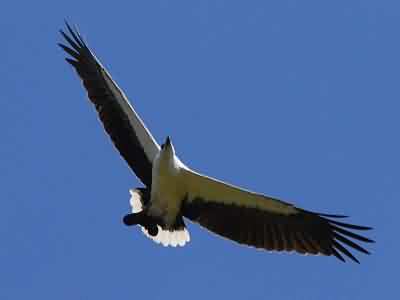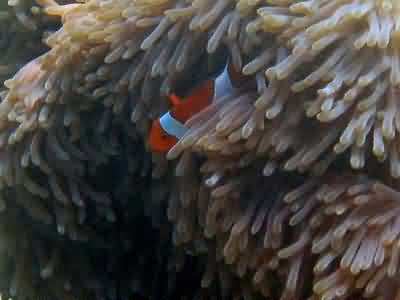ULAR EDOR (Calloselasma rhodostoma) karimunjawa
Ular Edor ( Calloselesma rhodostoma Fam. Viveridae)
Di kepulauan Karimunjawa jenis ular ini hanya ada di dua ( 2 pulau ) yaitu ada di karimunjawa dan kemujan, di pulau lainnya tidak ada. di karimunjawa ular ini disebut juga macannya karimunjawa sebab di karimunjawa ular berbisa hanya ada ini.
Nama umum yg sudah populer ular ini adalah ular tanah. Beberapa nama lain di antaranya ialah ular bandotan/oray gibug/oray bedudak/ular kapak & ular bedor. Nama edor yg diberikan penduduk setempat mungkin berasal dari kata bedor, yang berarti panah.
Pada waktu pertama-tama ular ini ditemukan, ia diberi nama Trigonocephalus rhodostoma. Beberapa nama lain terdahulu di antaranya ialah Ancistrodon rhodostoma & Agkistrodon rhodostoma. Tetapi nama ilmiah yg berlaku sekarang adalah Calloselasma rhodostoma; termasuk dlm suku/famili VIPERIDAE. Panjang tubuh ular dewasa jantan antara 350 – 800 mm & ular betina sampai 1045 mm. Ular edor tdk hanya terdapat di Karimunjawa ( awalnya masyarakat karimunjawa mengira ular edor adalah ular khas di karimunjawa ), tetapi juga di daratan Jawa & P. Kangean. Sebarannya sangat terbatas, Di Pulau Jawa-pun ia hanya ditemukan di Jawa Barat & beberapa tempat di Jawa Timur: di Surabaya, Malang & Kediri. Di luar Indonesia, ular ini terdapat di Thailand, Vietnam & Semenanjung Malaya bagian utara. Habitat ular edor adalah daratan (terrestrial), selalu di atas tanah, tdk dpt memanjat pohon. Ia bersembunyi di bawah serasah/daun-daun kering, akar & batu-batuan. Jenis ular ini hidup di daerah yg kemaraunya berlangsung sedikitnya satu bulan sampai empat bulan dlm setahun. Sifat hidupnya nocturnal, artinya ia giat mencari makan (mangsa) pd waktu malam. Pada waktu siang ia tidur di bawah akar atau batu-batuan. Corak warna tubuhnya yg mirip dgn lingkungannya, sehingga ia dpt menyamar (berkamuflase) seperti warna lingkungannya sehingga mata kita harus jeli agar dapat mengenalnya pada waktu siang hari pd jarak pandang yg tdk terlalu jauh. Memang, biasanya orang yg menjadi korban patukan ular ini tidak menyadari bahwa di dekatnya ada ular edor melingkar yg mendekam tak bergerak dgn posisi kepala mendongak siap menyergap bila ada musuh mendekat. Sikapnya yg pendiam pd siang hari & patukannya yg mematikan, membuat banyak orang merasa ngeri menghadapi ular ini. Tapi sebenarnya jarang sekali ada kasus orang dipatuk ular edor, sebab selain langka, ia juga tdk garang. Kalau tdk tersentuh atau terpijak tdk akan menyerang orang. Kehadirannya juga umumnya jauh dari hunian masyarakat.
ciri khas lain adalah ekornya yang bergetar dan telurnya yang lunak dan saling melekat.
di pulau Kemujan tepatnya dusun Jelamun ada yang memelihara Ular tersebut.
Karimun Jawa is a group of islands located in Jepara, Central Java. Since the atmosphere is still natural, that group of islands in the Java Sea is a perfect choice for an exotic pleasure location. Karimunjawa has an area of 11,625-hectare with the status as a marine national park and a conservation. Among the 27 islands in the group, only five are inhabited.
Those five islands are Karimunjawa / Karimunbesar (4302.5 ha), Kemujan (1501.5 ha), Parang (690 ha), Nyamuk (125 ha), and Genting (135 ha). The main attractions in Karimunjawa is pure natural panorama and fascinating typical fauna.
Karimunjawa fauna consists of the mainland species. Such as deer, long-tailed macaque, pangolin, porcupines, snakes, tongtong stork, gray heron, albatross, and wedi wedi. And, a relatively rare, the white belly sea eagle. While the water fauna species are coral reefs, sponges, soft corals, bahar root, red shells, turtles, and ornamental fish.



To enjoy the scenery under the sea, visitors can ride the glass ship. So called because the center of the deck of the ship deliberately made of glass so passengers can directly see the underwater sights. But for those who want to have live experience with the sea dwellers can always choose to dive or snorkeling.

The best time to visit the islands is April-October. Other than that, strong winds occur in the Java sea that is not conducive to shipping and tourism activities. Karimunjawa has 4 types of land and aquatic vegetation, which is lowland rain forest, mangrove forest, beach forest, and seaweed / seagrass. Lowland forest dominated 80 percent of the island where there are many ‘jambon’ trees (Acmena acuminatissima), gondorio (Bouea macrophylla), rokok-rokok, uyahuyahan (Procris penduculata), coconut (Cocos nucifera), sea pine (Casuarina equisetifolia), and many others.
Karimun Jawa is a group of islands located in Jepara, Central Java. Since the atmosphere is still natural, that group of islands in the Java Sea is a perfect choice for an exotic pleasure location. Karimunjawa has an area of 11,625-hectare with the status as a marine national park and a conservation. Among the 27 islands in the group, only five are inhabited.
Those five islands are Karimunjawa / Karimunbesar (4302.5 ha), Kemujan (1501.5 ha), Parang (690 ha), Nyamuk (125 ha), and Genting (135 ha). The main attractions in Karimunjawa is pure natural panorama and fascinating typical fauna.
Karimunjawa fauna consists of the mainland species. Such as deer, long-tailed macaque, pangolin, porcupines, snakes, tongtong stork, gray heron, albatross, and wedi wedi. And, a relatively rare, the white belly sea eagle. While the water fauna species are coral reefs, sponges, soft corals, bahar root, red shells, turtles, and ornamental fish.



To enjoy the scenery under the sea, visitors can ride the glass ship. So called because the center of the deck of the ship deliberately made of glass so passengers can directly see the underwater sights. But for those who want to have live experience with the sea dwellers can always choose to dive or snorkeling.

The best time to visit the islands is April-October. Other than that, strong winds occur in the Java sea that is not conducive to shipping and tourism activities. Karimunjawa has 4 types of land and aquatic vegetation, which is lowland rain forest, mangrove forest, beach forest, and seaweed / seagrass. Lowland forest dominated 80 percent of the island where there are many ‘jambon’ trees (Acmena acuminatissima), gondorio (Bouea macrophylla), rokok-rokok, uyahuyahan (Procris penduculata), coconut (Cocos nucifera), sea pine (Casuarina equisetifolia), and many others.












0 comments:
Post a Comment